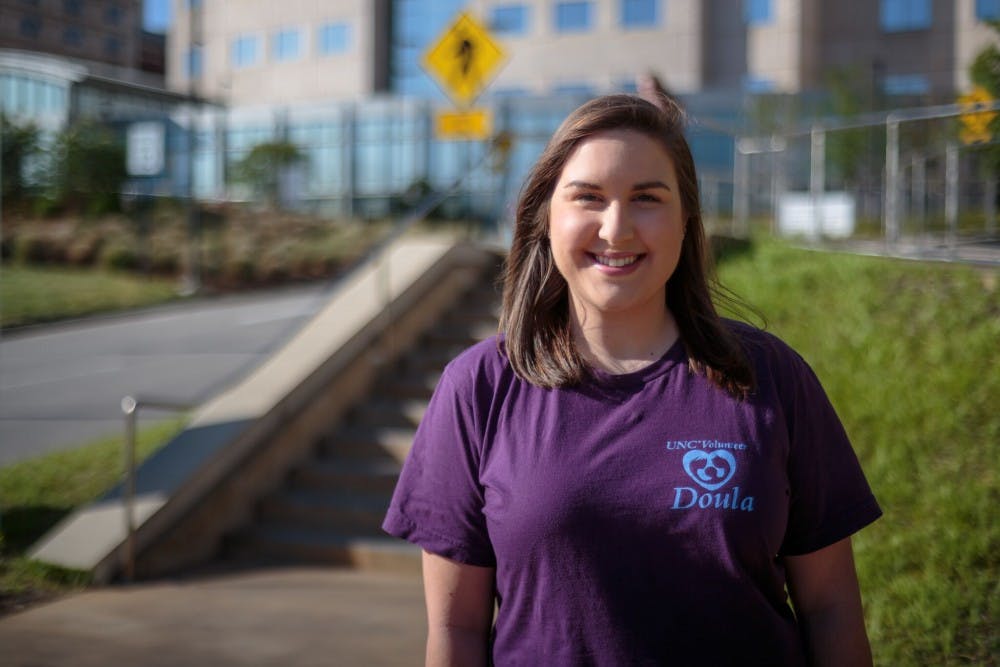Some people can misconstrue midwives and their profession, mistaking them for mythical practices. However, midwifery is a modern discipline that requires additional education to serve women in hospitals and in birth centers.
Kathy Higgins, the division director of midwifery services in the UNC Department of Obstetrics and Gynecology, said about 96 percent of midwives practice in a hospital, 3 percent practice in a birth center and about 1 percent practice home births. Higgins' team delivers at UNC Hospitals.
“There’s a lot more interest today in women to have more say in their healthcare and more involvement in their labor and pregnancy,” she said. “For midwives, that is their basic philosophy, in providing education and supporting them in their desires for their pregnancy and birthing experience.”
She said midwifery does about 15 percent of birth deliveries at UNC.
Before medicine became professionalized, midwives attended almost all home births in the American colonies. Later, in the antebellum South, African midwives arrived in America as slaves and attended the births of both Black and white women. The resurgence of midwives began in 1925 in the form of nurse-midwifery when Mary Breckinridge founded the Frontier Nursing Service.
Higgins said midwives only work with women who have low-risk pregnancies and labors because it allows the midwife to do what they’re specialized in — giving the mother the birth she wants. She said the birthing experience is one of the most important times in a woman’s life.
“It’s successful to allow women to be more active during their pregnancy and to actively plan and obtain support for the way they want to have their birthing experience,” she said.
Certified nurse-midwives, who are registered nurses that have graduated from a nurse-midwifery program, are the only ones that have the authority to practice in North Carolina. Certified nurse-midwives and certified midwives — non-nurse midwives that have completed a midwifery education program — attended 8.3 percent of U.S. births in 2014, according to the American College of Nurse-Midwives.
At UNC Hospitals, students can take a community training course to become a doula, which are volunteers that emotionally and physically support women in labor, Senior Leah Daniel said. She said they help women cope with birth because it can be overwhelming.



